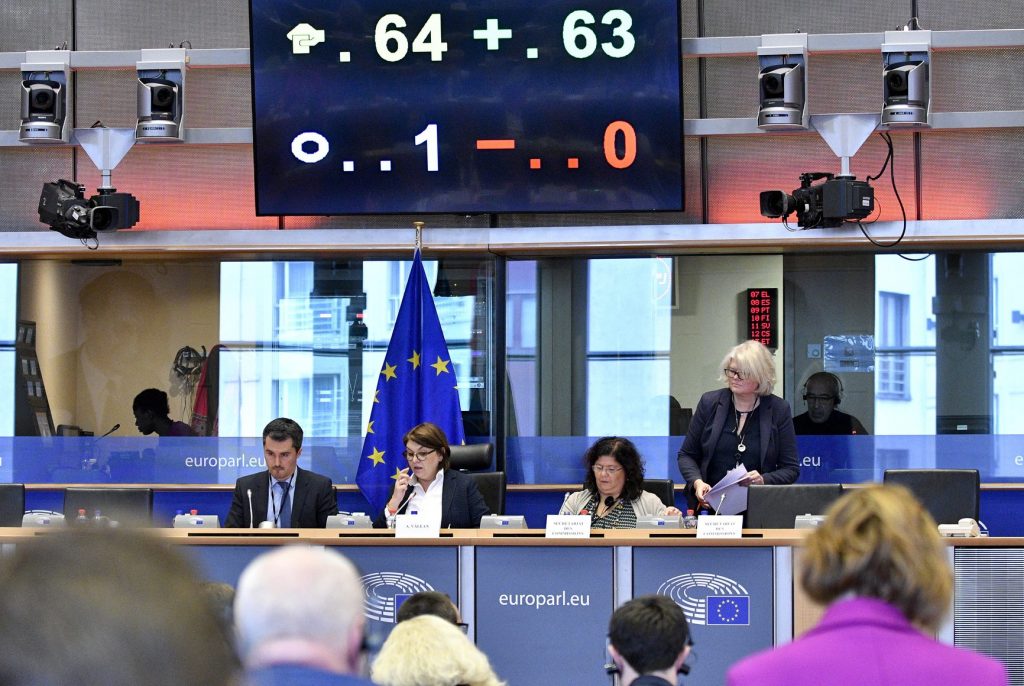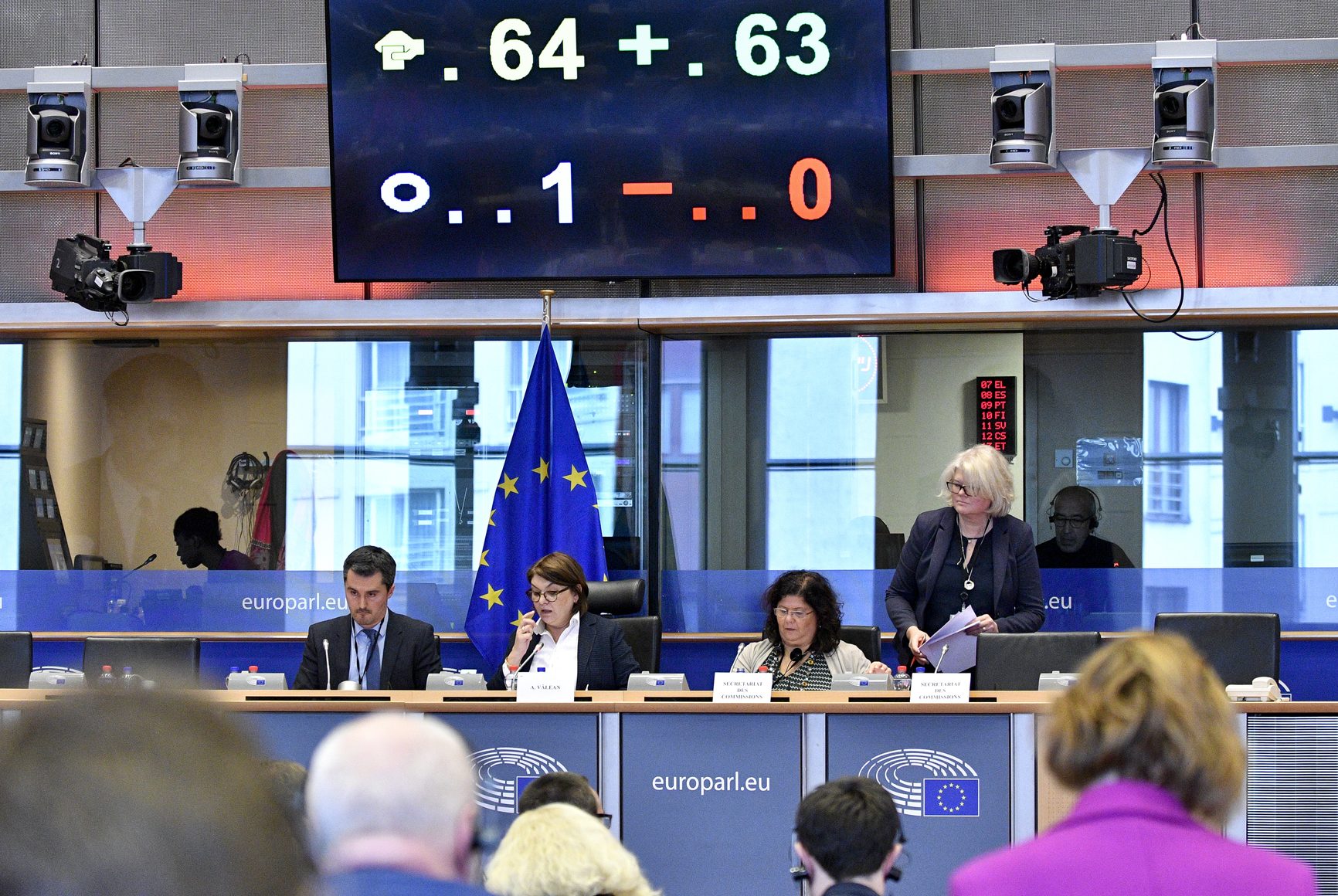Animal experiments have always been a matter of societal debate. The EU Directive 2010/63/EU therefore regulates very strictly for what purpose and under what conditions research on animals is permitted. In general, researchers may only choose animal experiments as a method in biomedical research if the scientific question cannot be answered with an alternative method, i.e. non-animal technologies. The long-term goal is to completely stop using animals as soon as this is scientifically possible. To achieve this, however, non-animal methods must be developed to such an extent that they can also be used to ensure scientific progress in biology and medicine and to test the safety and efficacy of new medicines and chemical substances before they are used by humans.
The EU citizens‘ initiative “Save Cruelty Free Cosmetics – Commit to a Europe Without Animal Testing” includes three demands. Among other things, it demands a much faster EU-wide phase-out of animal testing. Specifically, the initiative calls for a “modernisation” of science in the European member states as well as a step-by-step roadmap for the abolition of all animal testing in the EU „before the end of the current legislative period“.
Furthermore, the EU Citizens‘ Initiative demands that the ban on animal testing for cosmetics be tightened and that the EU Regulation 1907/2006 (REACH: Regulation, Registration, Evaluation, Authorisation and Restriction of Chemicals) be adapted accordingly.
A third demand is for EU chemical regulations. These regulations are to be amended to somehow ensure protection of humans, the environment and health without the use of animal testing. The background to the three demands will be examined in more detail in the second part of the report. But how exactly does an EU Citizens‘ Initiative work?
Who organises the EU Citizens‘ Initiative?

A German PETA staff member is registered as a representative of the organisers. Many other European animal protection and animal rights organisations support the initiative and were collecting signatures. According to the EU Register of Citizens‘ Initiatives, the initiative has a budget of almost 2.2 million Euros. More than 26 % of the money (about €570,000 ) comes from the British consumer goods company Unilever, which also holds the DOVE brand. Another 15 % came from the cosmetics company „The Body Shop“ (around €310,000). About a third of the budget (about €716,000) was contributed by PETA. The remaining 26 % was made up of contributions from various European animal protection and anti-animal testing organisations.
For comparison: An earlier successful citizens‘ initiative to abolish animal experiments („Stop Vivisection„, see below) had a budget of just under €24,000. The equally successful initiative „Stop Finning – Stop the Trade„ to curb shark finning and the trade with it had a budget of less than €18,000.
An EU citizens‘ initiative is a type of petition. They are launched to ask the European Commission to address a specific problem by proposing new or amending existing laws or enforcing them in another way. If a citizens‘ initiative reaches more than one million signatures, the Commission must address the demands and respond to them. To register such a citizens‘ initiative, people from seven EU countries must come together to form an organising group. This group must then apply for registration with the European Commission. After registration, the initiative has one year to fulfil the target number of signatures. In addition to the total number of signatures, a specified minimum number of signatories must also be reached in at least seven EU countries. On 31 August 2022, the twelve-month deadline for the EU citizens‘ initiative “ Save Cruelty Free Cosmetics – Commit to a Europe Without Animal Testing“ expired. It reached a about 1.4 million signatures – but these still have to be verified.
Meanwhile, the EU Parliament also deals with the petition. On May 25th 2023 there was a public hearing of the petitioners in front of the Committee on the Environment, Public Health and Food Safety (ENVI), with two additional committees being associated (AGRI and PETI). A recording of the hearing can be viewed online. The European Parliament may decide to take further measures. If this will happen is unclear at the moment.
Previous calls for phase-out plans
In 2013, the very similar EU citizens‘ initiative „Stop Vivisection„ called for an immediate phase-out of animal experimental research. Specifically, the EU Directive 2010/63/EU should be repealed and a new law proposed instead. The EU Commission stated in its 2015 response that the long-term goal must indeed be to end animal experimentation in Europe. The EU Directive 2010/63/EU on the protection of animals used for scientific purposes is exactly the right way to achieve this, it said. “Tierversuche verstehen” (TVV) has described this situation in more detail in a special report (German language). Instead of repealing the directive, the EU Commission therefore decided on other follow-up measures. These included, for example, organising a scientific conference in Brussels to discuss progress in the development of non-animal methods in biomedical research.
In September 2021, there was a request (resolution) from the European Parliament to the European Commission to develop an EU action plan to abolish animal research more quickly. In its response, the EU Commission welcomes the intention to abolish animal experiments in the long term, but again refers to the existing Directive 2010/63/EU. This directive already sets such a goal. The prerequisite for this is that non-animal approaches are available as alternatives.

All information on the legal basis and the conflict between the EU cosmetics regulation and the REACH regulation for the protection of people and the environment can be found in our fact sheet (PDF, German language).
However, the Commission also makes it very clear that these approaches depend on scientific progress, which cannot be predicted. Therefore, the best way to accelerate the transition to non-animal technologies is to focus and intensify existing efforts. In addition, existing structures and networks must be strengthened. The Commission thus clearly rejects concrete plans, milestones or short-term deadlines for a phase-out of animal experiments.
„The others are doing it too“
When it comes to the demand to completely abolish animal experiments in Germany or the EU, it is often pointed out that there are already plans for such a phase-out in other countries. Take the Netherlands, for example: there is said to have been a master plan to phase out animal experiments in the Netherlands by 2025. However, it turned out that this was a misinterpretation of a report by the National Committee for the Protection of Experimental Animals in Science (NCad). The document, commissioned in 2016, reported that a gradual phase-out of regulatory animal testing was theoretically possible by 2025 under certain conditions. However, a phase-out of animal experiments in basic and applied research was currently still unthinkable without jeopardising scientific goals. “Tierversuche verstehen” (TVV) published a special report in 2020, compiling extensive background information on this topic. Currently, there is also no significant progress in the Netherlands that goes beyond previous efforts. A transition programme (TPI) is intended to provide suggestions on how this transition to more animal-free methods can be achieved. The much-recited deadline of 2025 has not been mentioned since.
In addition to the Netherlands, the USA, Norway or Sweden are also credited with playing a pioneering role in phasing out animal experiments. In these countries, too, there are individual groups that are thinking about possible scenarios. Example USA: In June 2020, the responsible environmental authority (EPA), at that time under Donald Trump’s presidency, presented a plan with the participation of animal testing opponent organisations. The goal was to completely abolish toxicity tests for chemicals on mammals by 2035. However, under Trump’s successor, Joe Biden, this document was extensively revised in December 2021. It now no longer contains such a phase-out date, but only the claim to continuously review the current situation. The aim is to find ways to do without animal testing in this area, it says. (-> Overview at the EPA).

These examples show that the desire to reduce animal testing and to do without it altogether in the long term is widespread internationally. However, the examples from the individual countries also show that a phase-out of animal testing cannot be predicted nor implemented in all areas according to the current state of science.
The other demands of the EU citizens‘ initiative also have various aspects that need deliberate consideration.
Call for a ban on animal testing for cosmetics
1. Protect and strengthen the cosmetics animal testing ban. Initiate legislative change to achieve consumer, worker, and environmental protection for all cosmetics ingredients without testing on animals for any purpose at any time.
The EU Cosmetics Regulation states that animal testing is prohibited for chemical substances manufactured exclusively for use in cosmetic products. This ban concerns consumer protection. For decorative cosmetic products, a ban on animal testing has been in effect in Germany since 1986. Since 2013, there has also been a marketing ban throughout the EU on cosmetics that have been tested on animals as a finished product or whose ingredients have been tested on animals. The first demand of the EU citizens‘ initiative aims at the contradiction between the EU Cosmetics Regulation 1223/2009 and the EU Regulation 1907/2006 (REACH Regulation; Registration, Evaluation, Authorisation and Restriction of Chemicals). In September 2021, “Tierversuche verstehen” published an article, giving background on this contradiction.
The REACH Regulation requires that chemical substances used in large quantities (more than one metric ton) in the EU be tested for safety. This testing is done to protect humans and the environment. A mix of non-animal methods and animal testing is used for this type of safety testing. These tests also serve to protect the environment and the workplace, regardless of the end product in which the chemical substance is to be used. Thus, chemical substances used exclusively in cosmetics are also covered by the REACH Regulation if they have been produced in very large quantities. If there are no suitable alternative approaches for their safety testing, animal testing must be carried out. On the one hand, these animal tests would thus not be permissible for the protection of consumers, on the other hand, however, they are mandated for the protection of workers and the environment. The European Chemicals Agency (ECHA) examines all applications for such animal tests under the REACH Regulation. For all safety testing of chemical substances, non-animal alternatives are used where possible.
The ban on animal testing of cosmetic products or their ingredients to protect consumers applies without exception. However, for the safety of workers who come into contact with these chemical substances during production and processing, animal testing is necessary in exceptional cases. In this case, animal testing serves the purpose of health and safety in the workplace.

How many such exceptions there have been so far was examined in a study in October 2021. It found that since 2013, around 15 % of all applications for authorisation for ingredients used exclusively in cosmetics contained animal testing as the chosen method.
The topic of „cosmetics and animal testing“ is also covered in TVV’s podcast „Fablen, Fell and Fakten“ in episode S1E4 “No animal suffering for luxury – animal testing for cosmetics!?” 🇩🇪 as well as in the article „Animal testing and cosmetics – the ten biggest myths“ 🇩🇪.
Call to change EU chemicals regulation
2. Transform EU chemicals regulation. Ensure human health and the environment are protected by managing chemicals without the addition of new animal testing requirements.
Here the petitioners demand concrete steps to test the risk of chemicals for humans, animals and the environment without the use of animals in the future. To this end, there should be special funding programmes, timetables and more exchange between the responsible departments and authorities of the EU Commission. Within the framework of the European Green Deal, the EU has decided to launch a new sustainability strategy for chemicals. However, this could lead to a significant expansion of animal testing, for example when it comes to investigating damage of the endocrine system (so-called endocrine disruptors) or the immune system (immunotoxicology).
Call for modernisation of science in the EU
3. Modernise science in the EU: Commit to a legislative proposal plotting a roadmap to phase-out all animal testing in the EU before the end of the current legislative term.
With this goal, the EU Citizens‘ Initiative calls on the EU Commission to present a concrete plan on when it would be possible to phase out animal experiments. According to the organisers, the formulated goal of the EU Directive 2010/63/EU to replace all animal experiments as soon as it is scientifically possible, is not sufficient. Instead, they demand that animal experiments should be abolished even without suitable replacement methods. The arguments they put forward here are that animal studies have limited informative value and poor reproducibility. A specific phase-out date should help focus efforts and channel public funds into improving non-animal science. All this is demanded to be initiated before the end of the current legislative period in 2024. It is unclear, however, which part of the sentence the phrase „before the end of the current legislative period“ refers to.
On this topic, the Permanent Senate Commission on Research using Animals of the German Research Foundation (DFG) published a position paper in July 2022 on securing efficient biomedical research while maintaining the highest animal welfare standards. It sets out nine theses on the future viability of biomedical research and makes recommendations for decision-makers. Among other things, the expert panel addresses the ethical and legal framework of animal welfare and animal experimentation. The experts argue, among other things, that medical progress and scientific quality depend on the best possible suitability of methods. In this context, a broad spectrum of different methods is unavoidable, they say. „A separation of research ‘with’ or ‘without’ animals does not exist in science“ (thesis 6). A ban on animal experiments in the EU would not end the need for animal experiments. Rather, such a ban would result in biomedical research migrating to locations outside of Europe. On the one hand, this would weaken the EU’s position as a research location, and on the other, the EU would lose control over animal welfare.
In a guest article Olivia Masseck, Professor of Synthetic Biology at the University of Bremen, comments on the demand for a roadmap to phase out animal testing.






